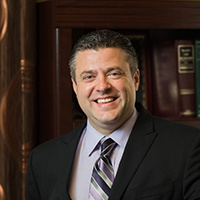Whitehouse Criminal Lawyer, Texas
Sponsored Law Firm
-
 x
x

Click For More Info:
-
Stephanie Alvarado Attorney at Law
100 N Central Expy Suite 805 Richardson, TX 75080» view mapCriminal Defense Law Fighting Against Unjust Prosecution
Attorney Stephanie Alvarado is there for her clients when help is needed right away. Helping people charged with crimes in Texas for over 20 years.
800-988-5471
Jeremy Daniel Coe
✓ VERIFIEDPersonal Injury, Immigration, Criminal, Divorce & Family Law
Jeremy Coe is a fourth-generation East Texan. He graduated from Winnsboro High School in 1991, where he was selected as “Best All-Around Boy.” A... (more)
Richard B. Patteson
✓ VERIFIEDEstate Planning, Elder Law, Family Law, Criminal, Estate
Put 30 years of experience to work for you.
A native of Jonesboro, Arkansas, Richard completed high school at The Hill School, a preparatory school in Pottstown, Pennsylvania, then graduated cum... (more)
Bob Whitehurst
Employment, Divorce & Family Law, Estate, Criminal, Workers' Compensation
Status: In Good Standing Licensed: 38 Years
FREE CONSULTATION
CONTACTFREE CONSULTATION
CONTACTDillion Matt Bingham
Food & Drug Administration, DUI-DWI, Criminal, Personal Injury
Status: In Good Standing Licensed: 31 Years
Cynthia S. Kent
Family Law, Juvenile Law, Criminal, Clean Air Practice
Status: In Good Standing Licensed: 47 Years
Austin Reeve Jackson
State Appellate Practice, Juvenile Law, Criminal, Administrative Law
Status: In Good Standing
 Stephanie Alvarado Richardson, TX
Stephanie Alvarado Richardson, TX Practice AreasExpertise
Practice AreasExpertise



